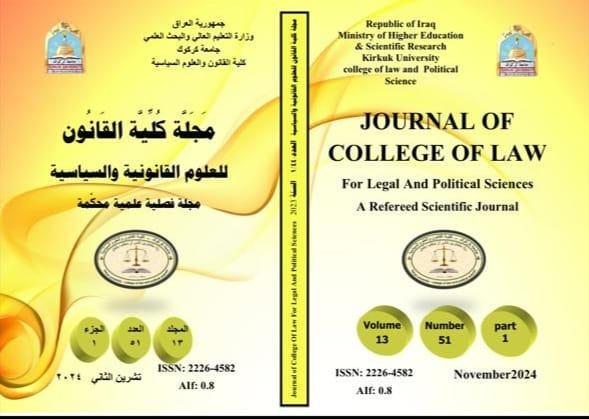Abstract
Physical activity and sports are important activities that have accompanied humanity since its inception, and have gained the attention of societies in various eras and over time have become important human rights that are no less important than other rights such as: political, civil, social, economic and cultural rights. Some international charters, especially international human rights instruments namely, the International Charter for Physical Education, Physical Activity and Sport )1978(, which was adopted by the United Nations Educational, Scientific and Cultural Organization (UNESCO), and the United Nations Human Rights Council resolution )2015(, addressed the right to sport and what is related to it. It is worth to be mention that the United Nations and other international agencies played a significant role in realizing this right. Nationally, the constitutions of most countries varied in dealing with the right to practice sports, some of them explicitly refer to this right and others merely mention it implicitly
The Constitution of the Republic of Iraq, 2005 - which is considered one of the modern constitutions - has guaranteed the right to practice sports as a human right and obligated the state authorities to provide protection for this right through legal, judicial and regulatory means that protect this right based on the Constitution, as the supreme law in the state. To complement this constitutional right, there are complementary legislation and regulations that determine this right, in addition to the existence of regulatory frameworks that undertake this through relevant executive administrative bodies. Finally, judicial guarantees adopted by the constitutional judiciary (The Federal Supreme Court) and the Ordinary judiciary (The Sport Court) to guarantee this right.

